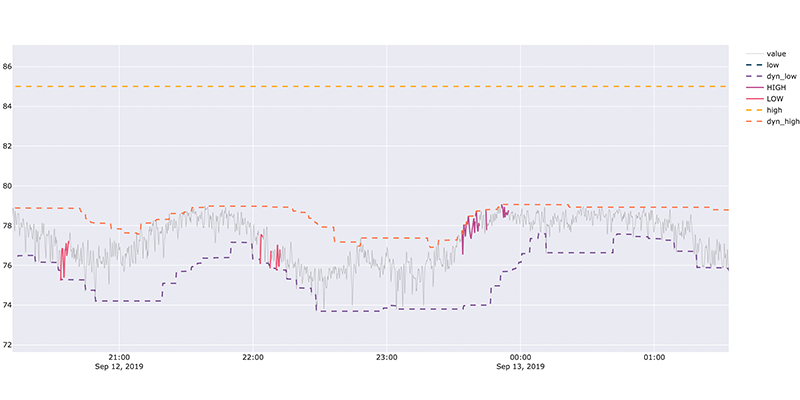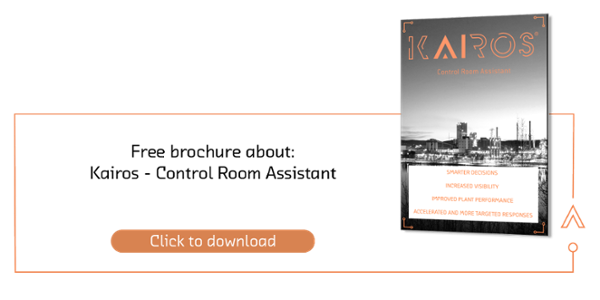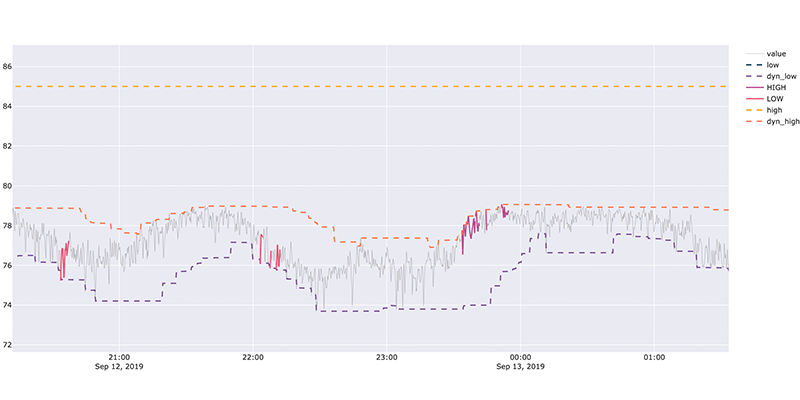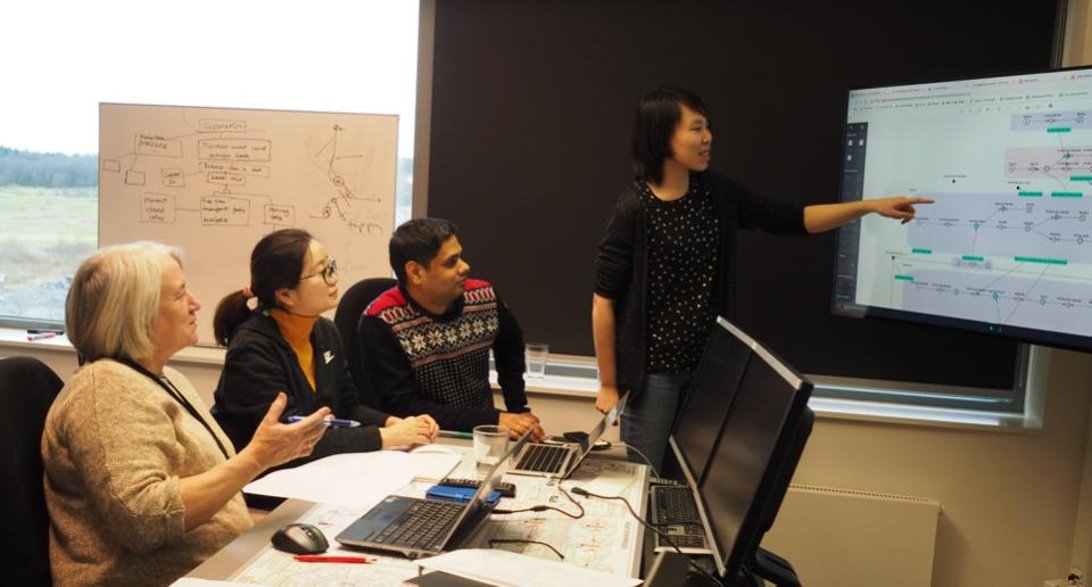Kairos is adding functionality to improve the user experience of our Control Room Assistant. The software will be improved with two yearly major releases (May and November) where added functionality is included. There may be minor releases in between, with bug fixes or customer specific improvements. Three of the important improvements you can expect in this months' release are the following:
1. User interface improvement
We are constantly working on improving the user experience. One of the new features will be adding a recent timeline for observations. This enables control room operators to observe and understand incidents that last for only a short moment. This function may also be further developed into a dedicated user interface for shift handover, but this is not on the release plan for the current year. Other improvements include more use of graphical symbols and colors. All improvements are planned and implemented in close cooperation between Control Room Operators and HMI (Human Machine Interface) experts.
2. Equipment not in Operation
It is a common experience that parts of a process is not in use at all times. This could be due to maintenance tasks or simply because there is redundant equipment in the process. A very simple example is duty and standby pumps. The result is often a problem of standing alarms in the ICSS, which therefore is also a challenge for the Control Room Assistant. We are now implementing a way of making the MFM model aware of the operational mode of the process. The result will be a more targeted presentation of abnormal situations, without the disturbance from equipment not being operational. The user interface has been enhanced to keep the operator informed about the equipment operational modes.
 Dynamic limits used to trigger reasoning
Dynamic limits used to trigger reasoning
3. Early warning - dynamic limits
The dynamic limits will capture deviations in the process variables and trigger reasoning better than by using limits. At the same time it is of paramount importance to avoid false positives. This will enable early warnings to control room operators, leaving more time for mitigation before a situation develops into loss of production. Machine Learning and other algorithms are being tested and will be available in our next release. In the current release, static limits are being optimized manually to trigger reasoning before reaching alarm or trip limits. This has been demonstrated to give good effect, but adding more time for operators to evaluate and respond is beneficial.






